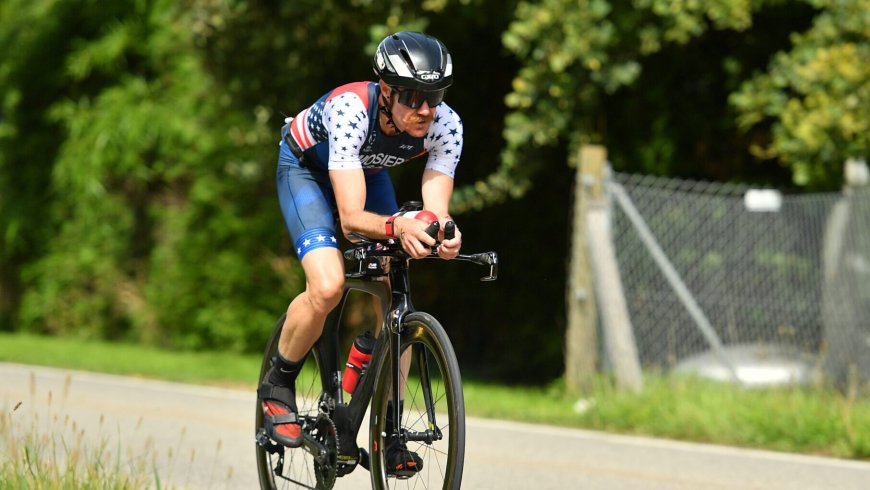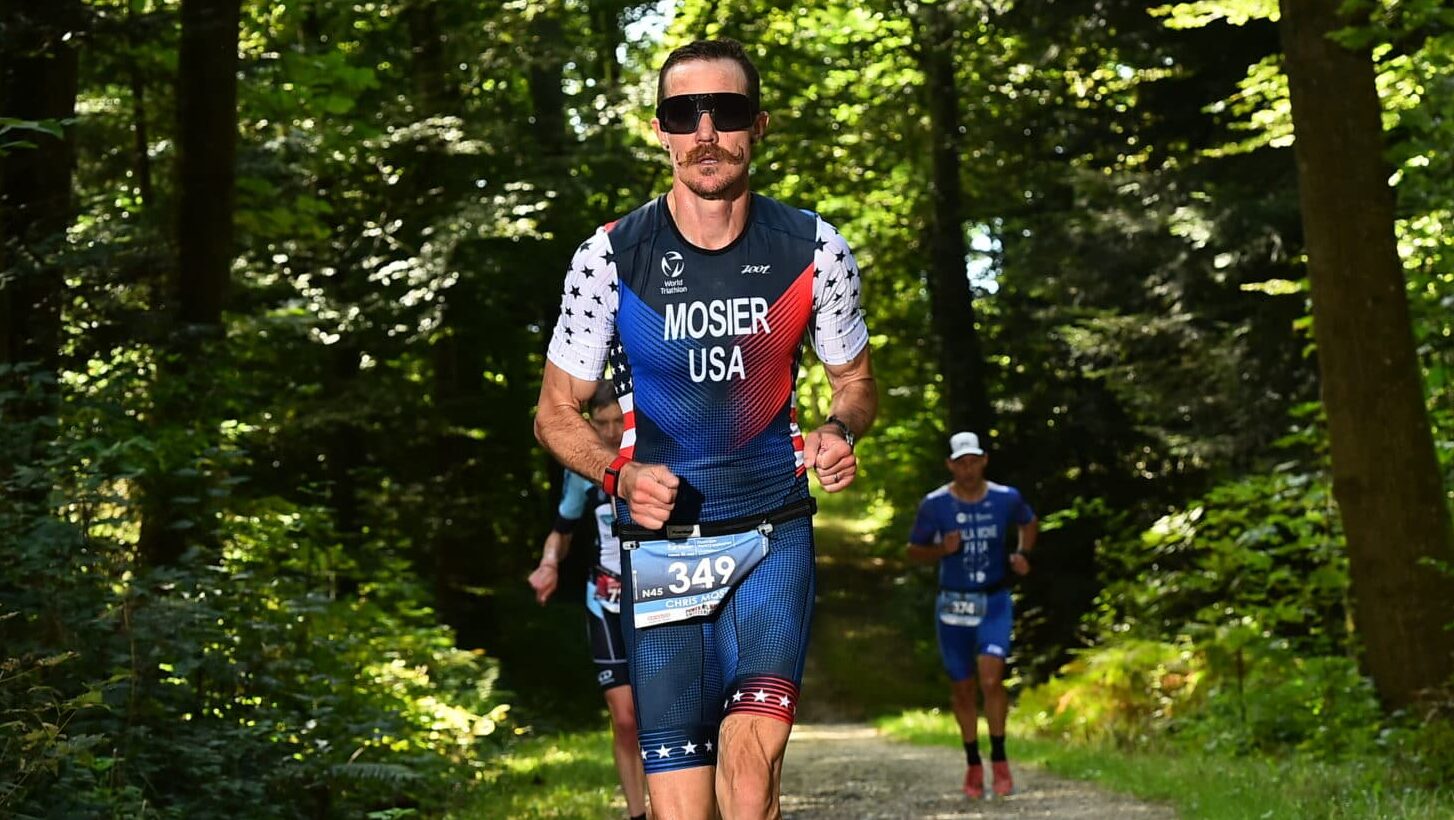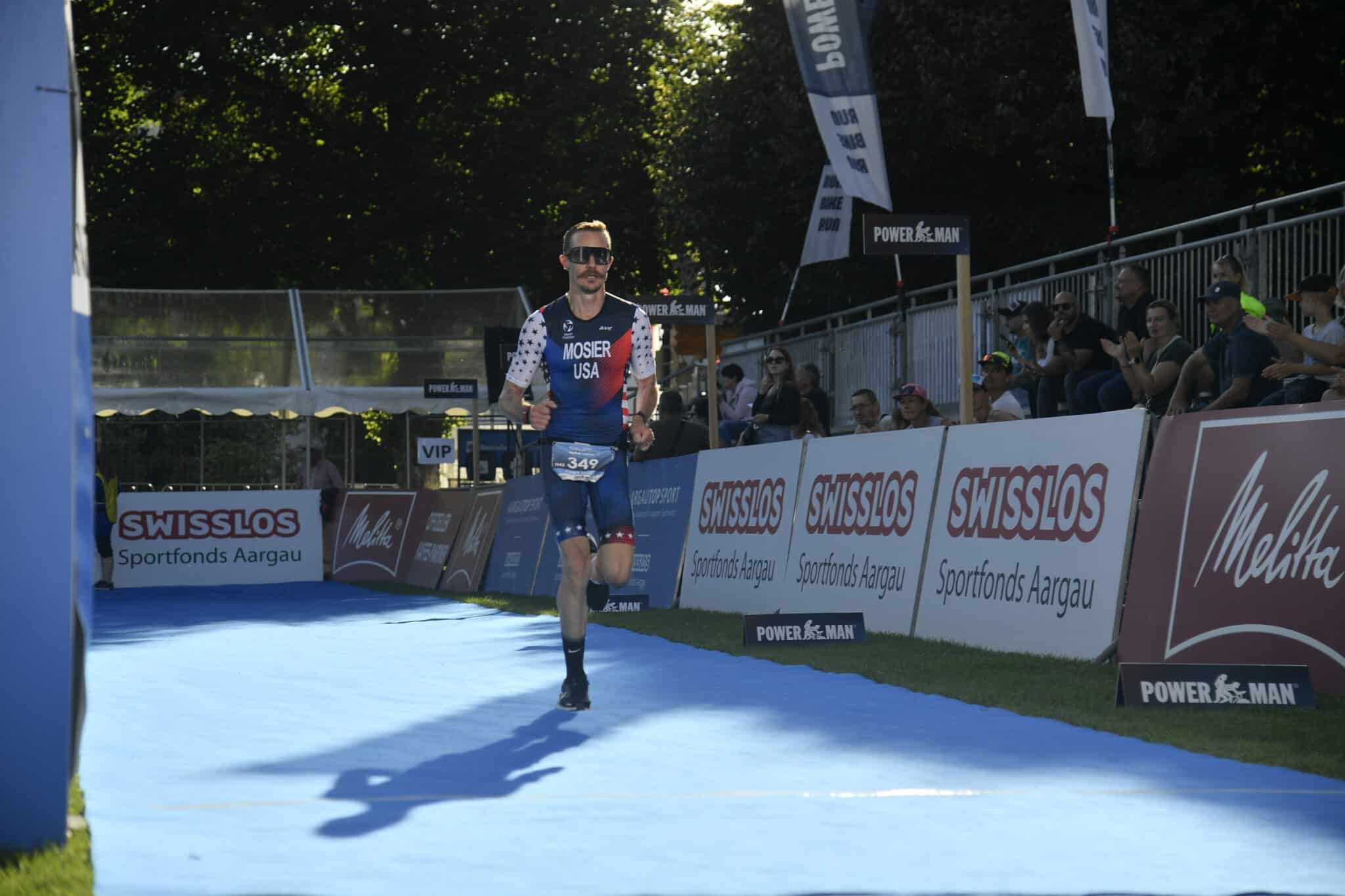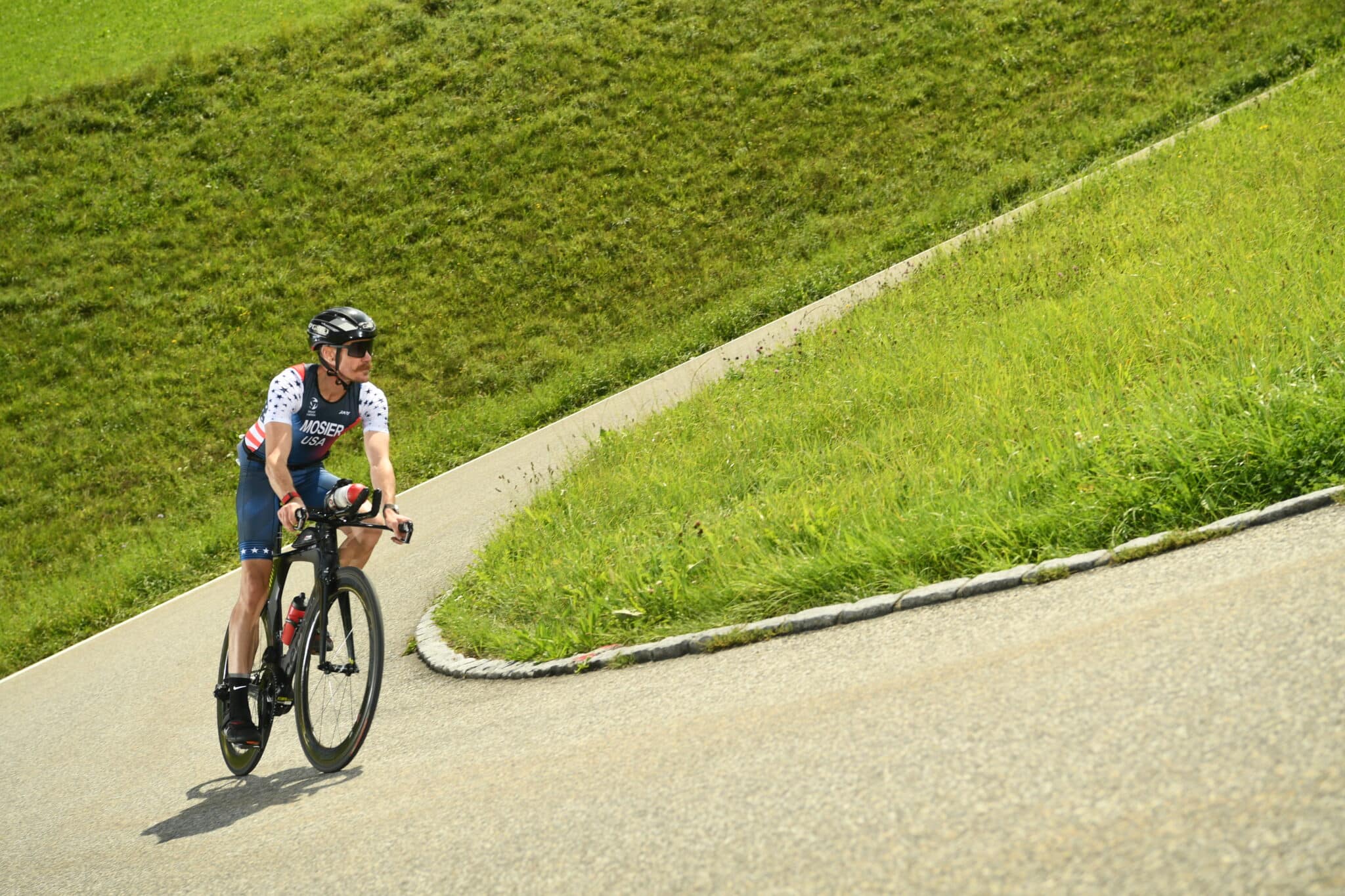Trans Athlete Chris Mosier on World Duathlon Championships: This Race ‘Feels Particularly Heavy’ in an Era of Policy Rollbacks
Mosier has competed internationally before, but he says that nothing feels quite like the present moment.

Chris Mosier, an eight‑time member of Team USA and a pioneering transgender athlete, is preparing to return to international competition at the upcoming World Duathlon Championships. For Mosier, the race represents more than a test of endurance, it marks a deeply personal milestone in the face of rising anti‑trans policies that have undone gains he helped forge.
Mosier made history in 2015 by successfully pushing the U.S. the International Olympic Committee (IOC) to change rules that excluded transgender athletes from competing in international events under their affirmed gender identity. More than a decade later, many of those rules are being rolled back. The upcoming race, his first international contest since these reversals, comes during what he describes as a charged and increasingly hostile political climate for trans athletes. “A Form of Protest” as Much as a Competition
Speaking exclusively to Gayety and when asked what this particular World Duathlon Championships means to him, Mosier did not mince words: “Competing in a World Championship is always an incredible experience. I treasure it because it’s a chance for me to be an athlete first and foremost, and do what I love to do.
Mosier later went on to add, “This race, however, feels particularly heavy given the massive wave of anti-trans policies and rhetoric in the United States and globally. This year’s race is not just a time for me to compete against the best in the world; for me, it’s a form of protest. Transgender people, and specifically transgender athletes, have been the targets of attacks on every level and in every area of life, ranging from sports to education, healthcare to identification documents, and everything in between. For me to show up as a proud transgender athlete and represent a country that is targeting my community at home is an act of resistance and an opportunity to be a moment of hope and possibility for transgender people in sport and society.”
 Chris M. World Championship Images Photo:: Chris Mosier
Chris M. World Championship Images Photo:: Chris Mosier
He coalesces his identity as both athlete and activist, emphasizing that “for me to show up as a proud transgender athlete and represent a country that is targeting my community at home is an act of resistance and an opportunity to be a moment of hope and possibility for transgender people in sport and society.” Training Under Constraints
Mosier’s preparation has been shaped by both physical setbacks and immense mental pressure. “Physically, my training was a more compressed version of what I would typically do to prepare, which is a lot of biking, running, and strength training. I was injured earlier this year and didn’t begin training until May, which was a few months after I would have otherwise started preparing.”
Mentally, the urgency of returning to the global stage has been heightened by discriminatory policies and public rhetoric, Mosier says. What Makes This Moment Different
Mosier has competed internationally before, but he says that nothing feels quite like the present moment.
Mosier shares that he has had to reckon with fears about safety, travel, and identity documentation. “A lot of my mental energy in the lead up to this race was questioning if I would be safe traveling, competing, and returning to the United States using my passport.”
 Chris M. World Championship Images Photo:: Chris Mosier
Chris M. World Championship Images Photo:: Chris Mosier
He further notes that the global perception of the United States feels different, often more negative. Mosier has heard from teammates about changing attitudes abroad toward the U.S., and he senses those perceptions are tied to political climates both at home and internationally. What Is Duathlon, and Why It Suits Him
For those unfamiliar, duathlon competition consists of a run, followed by a cycling segment, then another run. Mosier originally came to duathlon via triathlon, but found the run‑bike‑run format more aligned with his strengths and preferences. Fighting to Keep Hard‑Won Victories
Mosier’s role in shaping trans inclusion policy has been significant. In 2015, part of his advocacy helped change IOC and USOPC policies to allow transgender athletes to compete in international competition in accordance with their gender identity.
 Chris M. World Championship Images Photo:: Chris Mosier
Chris M. World Championship Images Photo:: Chris Mosier
But with the rollback of many of those policies, the impact is deeply personal and severe. “As an athlete, I show up to train and race knowing that no one else at the starting line has been focusing their attention on their safety and worrying if they will lose their opportunity to compete in the same way that I have been. It’s an extra barrier that makes my presence in those spaces feel even more significant,” he sated.
He even frames this moment as more than competition, it’s a fight for survival, visibility, and dignity. Travel, Identity, and the Weight of Visibility
Recent policy shifts have directly threatened Mosier’s ability to travel, advocate, and even feel safe. “Earlier this year, I was worried about the new passport rules, the confusion that followed about enforcement and what it actually meant. In the past, I’ve been stopped by TSA and questioned about my gender and my identification. It was terrifying. So for the first part of the year, I declined multiple international speaking engagements and chose not to travel to race out of concern. Ultimately, I decided that traveling for the World Championship was worth it, and a risk I was willing to take.”
Despite lighter travel and competition schedules, Mosier says that his advocacy work feels more important now than ever.
He is also candid about the emotional weight of being visible at such a contentious time.
“It definitely requires balance. I want to show up and represent for my community, fully aware that doing so puts me in the crosshairs of people with powerful platforms and an even deeper hatred of trans people.”
For Mosier, this race marks more than a return, instead, it is a full‑circle moment. Nearly a decade after helping change trans‑inclusion policy, he finds himself competing internationally while those policies are being dismantled in many places.
“In my first international competitions, my presence was about raising awareness of trans people in sports and fighting for a pathway to compete. Now, nearly a decade later, it feels like we are not fighting for access, we are fighting for our lives. To pull on a Team USA uniform and represent the United States internationally feels conflicting, but I believe that when I suit up I can represent the very best of the United States: the values of love, inclusion, possibility, and joy,” he stated. Message to Trans and Nonbinary Athletes
Finally, what Mosier wants to say to others watching and aspiring: belonging is not conditional.

 Mark
Mark 





